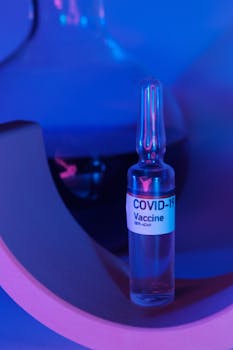
**
The U.S. Food and Drug Administration (FDA) has updated its warnings regarding the potential risk of myocarditis and pericarditis, types of heart inflammation, following vaccination with Pfizer-BioNTech and Moderna's COVID-19 vaccines. This move has sparked renewed discussion and concern amongst the public, prompting many to ask: should I be worried? This article delves into the FDA's announcement, examines the risks, and offers guidance based on current scientific understanding.
Understanding the Updated FDA Warnings: Myocarditis and Pericarditis After COVID-19 Vaccination
The FDA's updated warnings emphasize the increased risk of myocarditis (inflammation of the heart muscle) and pericarditis (inflammation of the lining around the heart) following vaccination, particularly in younger males. While the overall risk remains low, the agency's decision to strengthen the warnings reflects a commitment to transparency and patient safety. The updated labeling now includes more detailed information about:
- Increased risk in younger males: The risk is significantly higher in males aged 16 to 24 years old, especially after the second dose.
- Symptoms: The warnings detail common symptoms of myocarditis and pericarditis, including chest pain, shortness of breath, and an abnormal heartbeat. Early recognition of these symptoms is crucial.
- Timing of onset: The information clarifies the typical timeframe for the onset of these conditions following vaccination, usually within a week.
- Treatment and recovery: The updated labels also offer information on typical treatment options and recovery prospects, emphasizing that most individuals recover fully.
Key Differences from Previous Warnings: What's Changed?
While previous warnings alluded to the possibility of myocarditis and pericarditis, the recent updates are more explicit and comprehensive. The FDA has incorporated more data from ongoing surveillance efforts, leading to a more nuanced understanding of the risk profile. This includes:
- More precise age and gender risk factors: The agency's updated information provides a clearer picture of which demographic groups are at higher risk.
- Enhanced symptom descriptions: The warnings offer a more detailed description of potential symptoms, enabling easier identification.
- Emphasis on seeking prompt medical attention: The FDA strongly encourages individuals experiencing symptoms suggestive of myocarditis or pericarditis to seek immediate medical attention.
COVID-19 Vaccine Benefits vs. Risks: Weighing the Evidence
The FDA's decision to strengthen the warnings does not indicate that the vaccines are unsafe. The benefits of COVID-19 vaccination in preventing severe illness, hospitalization, and death significantly outweigh the rare risk of myocarditis or pericarditis for the vast majority of people.
The updated warnings are crucial for informed consent and proactive risk management. However, it's vital to maintain perspective. The absolute risk of these heart conditions remains low, and the overwhelming evidence continues to support the efficacy and safety of the vaccines in preventing severe COVID-19 outcomes.
Understanding the Low Absolute Risk: Putting Things in Perspective
It's essential to understand that "increased risk" does not equate to "high risk." While the risk is statistically higher in specific age and gender groups, the absolute number of cases remains relatively small compared to the millions of individuals who have received the vaccines. Focusing solely on the potential risks without considering the broader context of the pandemic's impact can lead to misinterpretations.
Who Should Be Particularly Concerned?
Individuals who fall into the higher-risk categories – young males aged 16 to 24 – should be particularly aware of the potential risks and symptoms. However, even within this group, the risk remains relatively low. Open communication with healthcare providers is paramount.
Should You Delay or Skip Vaccination?
The decision to get vaccinated remains a personal one, informed by individual risk factors and consultation with healthcare professionals. While the updated warnings are important, skipping vaccination altogether carries significantly greater risks, especially given the potential for severe COVID-19 illness, long COVID, and death. Weighing the individual risks and benefits is crucial, with the guidance of a healthcare provider.
What to Do if You Experience Symptoms: Seeking Prompt Medical Care
If you experience chest pain, shortness of breath, or an irregular heartbeat within a week of receiving a Pfizer or Moderna COVID-19 vaccine, seek immediate medical attention. Early diagnosis and treatment are vital for optimal outcomes.
Monitoring Your Health After Vaccination: Staying Vigilant
While most individuals experience no significant side effects, it's essential to monitor your health for any unusual symptoms following vaccination. This proactive approach can help identify potential issues early on.
Conclusion: Informed Decision-Making and Ongoing Monitoring
The FDA's updated warnings underscore the importance of ongoing surveillance and data analysis in vaccine safety monitoring. While the risk of myocarditis and pericarditis is low, the agency's transparency ensures that individuals have the information needed to make informed decisions about their health. The benefits of COVID-19 vaccination continue to outweigh the risks for most, but open communication with healthcare providers is crucial for personalized risk assessment and management. Staying informed about the latest updates and seeking medical advice when needed are paramount to navigating the complexities of vaccine safety in the context of the ongoing pandemic. Remember, the information provided here is for informational purposes only and does not constitute medical advice. Always consult with a healthcare professional for personalized recommendations.




















